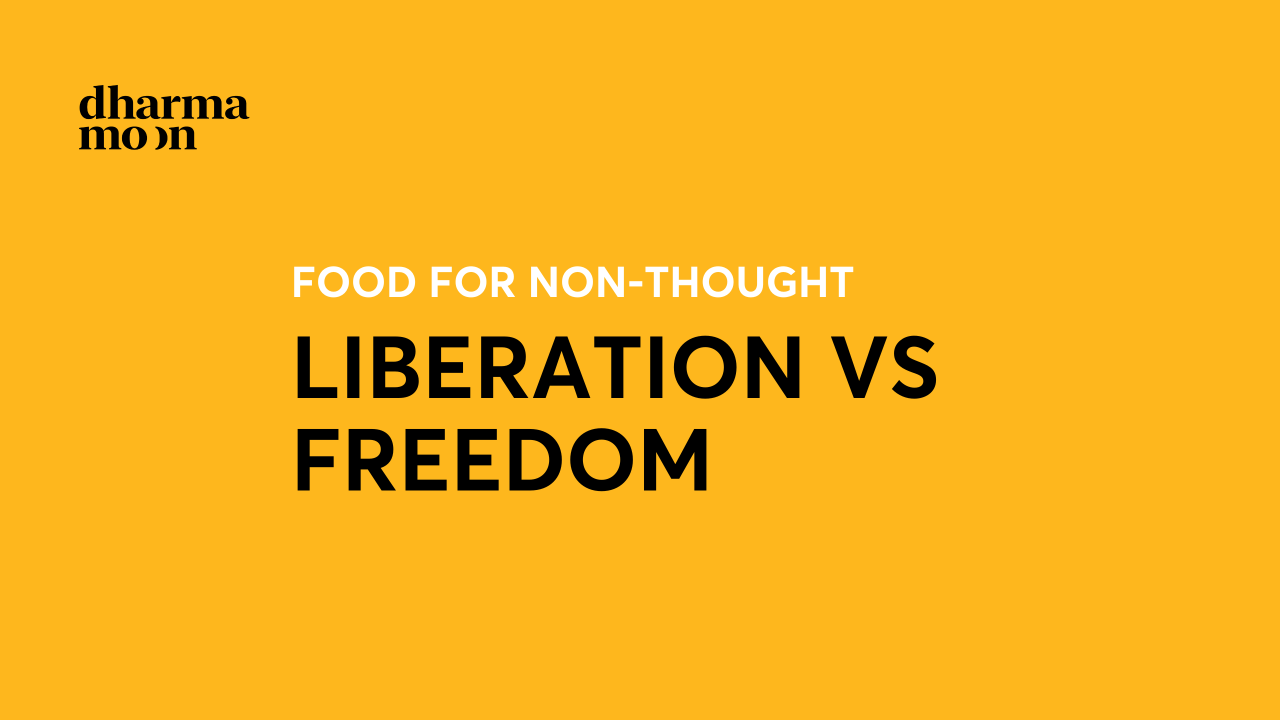Liberation vs. Freedom

Written by René Fay
We casually toss around the words “freedom” and “liberation” all the time — especially in a world where rights are constantly under threat, and we can live stream global atrocities and unfathomable devastation all day every day. Of course, everyone wants to be free. And as “liberation” becomes a buzz word in Buddhist, Buddhish, activism, and community spaces, it’s easy to assume freedom and liberation mean the same thing. But are they interchangeable? And when Buddhists talk about liberation for all beings, how can that be even remotely possible? I mean, just look at it out there — it’s a mess!
Liberation and freedom are related, but they are not the same thing. Freedom is relative, conditional. Freedom can be granted and thus can be taken away. We see this play out daily by various worldly injustices, inequities, and oppression. There can be external forces determining access to freedom that are very often outside of our control.
Liberation is ultimate, unconditional, and often primarily internal. While the work of liberation is not done in a vacuum — we live in an interconnected and interdependent world — it’s not something that can be magically bestowed upon us by someone else. It is not the avoidance of relative pain and worldly conditions, even those that are violent or oppressive. Rather, it is the cessation of suffering, the additional layers of pain we add to a situation with our own reactions, assumptions, and storylines that build upon the pain that was once outside of our control.
While freedom is relative and liberation is ultimate, one is not lesser than the other. We hold them both simultaneously. We live them both simultaneously. They are intrinsically intertwined, and equally worth fighting for.
One who is incarcerated or imprisoned in any way, for instance, has lost access to freedom. Yet they may still be on a path towards, or even have achieved, personal liberation. But that doesn't mean abolition isn't a worthy cause; a step towards relative freedom can also be in support of collective liberation.
Fighting injustice is vital. We don’t turn away from the suffering in the world simply because it is “relative.” If we are able to hold a view of liberation alongside it, we can also know that the suffering and oppression we are experiencing in the world, directly or indirectly, does not define us. It is not our entirety as an individual or as humans. That can be hard to hold. Suffering is real. We experience it. We can work to lessen and ultimately liberate ourselves from it. Injustice and oppression are real. People are losing freedom every moment. We can work toward justice and freedom — maybe in a more resourced way if, bit by bit, we learn to let go of our own personal suffering however we can.
